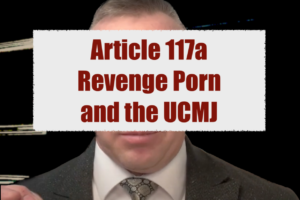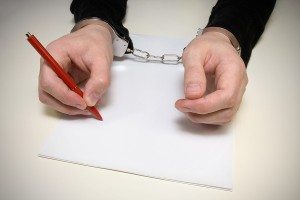
One of the fundamental choices a military accused has is his decision to testify in his own defense or to remain silent. No matter how much advice he will receive on this issue, ultimately the decision is his alone. Most military judges will inquire on the record to ensure when the accused elects not to testify that the decision was his personal one and not one that was forced on him by his counsel or anyone else.
From the answers of many potential military panel members over the years, the natural human inclination is to assume that if a person is innocent of the charges, that person would want to testify in his or her own defense. The decision to testify or to remain silent is not so simple. During the voir dire process, a seasoned civilian defense attorney can understand much about a potential panel member’s mindset about the accused’s right to remain silent. Over the years, I have developed a series of questions that strike to the heart of those potential biases to test if an individual panel member could envision in their mind an innocent reason why a military accused might elect to remain silent and not testify. That member’s non-verbal cues, the hesitation, if any, before offering an example of an innocent reason, and whether or not they are able to articulate one or more possible answers. One of the “best” answers I have received when asking these types of questions is that the government failed to prove the case and there would be no need for the military defendant to respond. Another positive response is that the person would potentially worry about having something they said misinterpreted on cross-examination; a close cousin to this response is that the person is not comfortable with public speaking or that they are embarrassed to talk about the subject matter because it is so intimate. A catchall response that I often receive is that the attorney advised them not to for any number of reasons.
One of the most common reasons a UCMJ criminal defense attorney might advise their client not to take the stand is that some evidence that was previously deemed inadmissible would become admissible. No matter how well-rehearsed a direct examination and mock cross-examination, the nerves that are associated with testifying in one’s own criminal trial and the turn of a phrase or the slip of the tongue could “open the door” to evidence that was once deemed inadmissible.
Another tactical consideration that impacts a UCMJ criminal defense attorney’s advise to the client about testifying is the strength of the government’s evidence. As the potential panel members alluded to, even the strength of a case file is not always an indication of the strength of the evidence that comes out in trial. Some trial counsel forget to introduce evidence, some trial counsel do not bring the appropriate proponent witnesses in order to enable to them to introduce the evidence, and some counsel do not agree recognize the meaning and import of some pieces of evidence. For whatever reason, after the close of the government’s case, the defense attorney may at that point advise the client not to that the stand because despite how strong the evidence looked like on paper, the advocate in court did not present it to the fact-finder.
Yet another factor that weighs on the advice to give a client about whether or not to testify is the substance itself of what would be their testimony. Circumstances arise where the client would corroborate 95% of what the complaint alleges and lend credibility to the case against them; in those scenarios, the 5% difference is where the criminal action takes place. In these situations, a criminal defense attorney’s greatest fear is that the argument of “the story doesn’t make sense” goes away because the client’s testimony would make the story “make sense.”
Presentation, demeanor, and a certain X factor also play into a criminal defense attorney’s advice regarding testimony by the client. If getting to know the client has caused the defense attorney to understand how the allegations could not be true, then the attorney may lean toward at a minimum preparing the client for testimony.
Preparation for taking the stand is lengthy and is not a last minute endeavor. If there is a chance that the attorney will recommend testifying, preparation has to be undertaken. Often, a client is prepared to take the stand because the defense is committed to that course of action. Even still, the recommendation is often a “game-time” call.
Whatever the decision, it should be made by the client with as much preparation and feedback as possible. Trial observers have remarked in cases that I have heard about, “I thought the defense had it sealed until the accused took the stand.” Cases can be won or lost based on the testimony of the accused and how the accused person stands up to cross-examination. The tactical considerations in any given case are many and are fact-specific to each case. In order for a military accused to make the “right” call in their case, the decision regarding representation is crucial.
You Might Also Like These Articles In 2017, Congress added a new offense to the UCMJ as part of the 2018 National Defense Authorization Act (NDAA)… Few military investigations ever were improved by the servicemember giving a statement to law enforcement without the benefit of counsel.… “I keep getting older but they keep staying the same age…” – Matthew McConaughey in Dazed and Confused Matthew McConaughey’s…






 REQUEST A CONSULTATION
REQUEST A CONSULTATION 